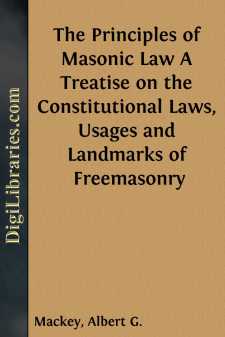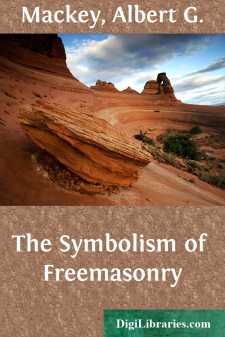Categories
- Antiques & Collectibles 13
- Architecture 36
- Art 48
- Bibles 22
- Biography & Autobiography 813
- Body, Mind & Spirit 142
- Business & Economics 28
- Children's Books 14
- Children's Fiction 11
- Computers 4
- Cooking 94
- Crafts & Hobbies 4
- Drama 346
- Education 46
- Family & Relationships 57
- Fiction 11828
- Games 19
- Gardening 17
- Health & Fitness 34
- History 1377
- House & Home 1
- Humor 147
- Juvenile Fiction 1873
- Juvenile Nonfiction 202
- Language Arts & Disciplines 88
- Law 16
- Literary Collections 686
- Literary Criticism 179
- Mathematics 13
- Medical 41
- Music 40
- Nature 179
- Non-Classifiable 1768
- Performing Arts 7
- Periodicals 1453
- Philosophy 64
- Photography 2
- Poetry 896
- Political Science 203
- Psychology 42
- Reference 154
- Religion 513
- Science 126
- Self-Help 84
- Social Science 81
- Sports & Recreation 34
- Study Aids 3
- Technology & Engineering 59
- Transportation 23
- Travel 463
- True Crime 29
The Principles of Masonic Law A Treatise on the Constitutional Laws, Usages and Landmarks of Freemasonry
by: Albert G. Mackey
Description:
Excerpt
Chapter I.
Historical Sketch.
Grand Lodges under their present organization, are, in respect to the antiquity of the Order, of a comparatively modern date. We hear of no such bodies in the earlier ages of the institution. Tradition informs us, that originally it was governed by the despotic authority of a few chiefs. At the building of the temple, we have reason to believe that King Solomon exercised an unlimited and irresponsible control over the craft, although a tradition (not, however, of undoubted authority) says that he was assisted in his government by the counsel of twelve superintendants, selected from the twelve tribes of Israel. But we know too little, from authentic materials, of the precise system adopted at that remote period, to enable us to make any historical deductions on the subject.
The first historical notice that we have of the formation of a supreme controlling body of the fraternity, is in the "Gothic Constitutions" which assert that, in the year 287, St. Alban, the protomartyr of England, who was a zealous patron of the craft, obtained from Carausius, the British Emperor, "a charter for the Masons to hold a general council, and gave it the name of assembly." The record further states, that St. Alban attended the meeting and assisted in making Masons, giving them "good charges and regulations." We know not, however, whether this assembly ever met again; and if it did, for how many years it continued to exist. The subsequent history of Freemasonry is entirely silent on the subject.
The next general assemblage of the craft, of which the records of Freemasonry inform us, was that convened in 926, at the city of York, in England, by Prince Edwin, the brother of King Athelstane, and the grandson of Alfred the Great. This, we say, was the next general assemblage, because the Ashmole manuscript, which was destroyed at the revival of Freemasonry in 1717, is said to have stated that, at that time, the Prince obtained from his brother, the king, a permission for the craft "to hold a yearly communication and a general assembly." The fact that such a power of meeting was then granted, is conclusive that it did not before exist: and would seem to prove that the assemblies of the craft, authorised by the charter of Carausius, had long since ceased to be held. This yearly communication did not, however, constitute, at least in the sense we now understand it, a Grand Lodge. The name given to it was that of the "General Assembly of Masons." It was not restricted, as now, to the Masters and Wardens of the subordinate lodges, acting in the capacity of delegates or representatives, but was composed, as Preston has observed, of as many of the fraternity at large as, being within a convenient distance, could attend once or twice a year, under the auspices of one general head, who was elected and installed at one of these meetings, and who, for the time being, received homage as the governor of the whole body. Any Brethren who were competent to discharge the duty, were allowed, by the regulations of the Order, to open and hold lodges at their discretion, at such times and places as were most convenient to them, and without the necessity of what we now call a Warrant of Constitution, and then and there to initiate members into the Order. To the General Assembly, however, all the craft, without distinction, were permitted to repair; each Mason present was entitled to take part in the deliberations, and the rules and regulations enacted were the result of the votes of the whole body....



